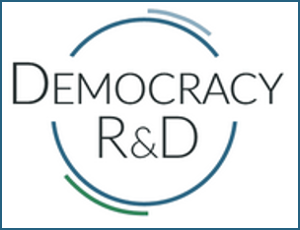Sortition means to ‘select by lot’ but in the vernacular of modern politics it also means the use of random selection to populate assemblies or fill political positions. It is the process of establishing people’s or citizen’s assemblies, who then deliberate on given issues and deliver their collective judgement.
The development of this current proposed model of sortition owes much to the social theory of progressive change favoured by the Frankfurt School. Nominally left of center think tanks, like Demos, the IPPR, the Fabian Society, Progress, Catalyst and the New Economics Foundation, combined to form one of the leading proponent of the new version of sortition the Labour Party pressure group Compass. They currently back the sortition group Up To Us.
Compass recently issued a joint press statement, along with theologians, Lords & Ladies and other pressure groups (celebrities adding the obligatory glitter), to suggest a “fix” for the Brexit impasse. Despite the fact that the British people have voted to leave the EU in one referendum (the largest plebiscite in British history) and two general elections, this apparently constitutes a “deadlock.”
Compass, The Sortition Foundation, Hope Not Hate, Involve, the Electoral Reform Society and many others have offered sortition as a potential fix for this ‘deadlock,’ regardless of the fact there isn’t one. The problem, it would seem, is that people just keep voting the ‘wrong’ way. This group deserve closer attention than offered here (please watch this space.) For now, we will focus on what this proposed model of sortition is and consider the potential benefits and pitfalls.
For it’s staunchest proponents, sortition would create assemblies empowered to make binding decision or set policy. A potential new form of government to augment and eventually replace what they see as a failing party political, parliamentary democratic system. As a critic of parliamentary democracy, which is not democracy at all but rather an “elected aristocracy,” far from welcoming this apparent move towards devolution of power, it is something I suggest we should all be very concerned about.
The form of sortition proposed will not give the people a stronger voice. It will, in fact, deliver the precise opposite. I urge everyone to familiarise themselves with the groups and individuals behind, what we might call, ‘the sortition movement’ and Lawfully oppose it whenever and wherever possible.

I am sure the vast majority of those calling for sortition have the best of intentions. Yet, like most mass movements that suddenly spring from nowhere, such as Extinction Rebellion, there are powerful influences guiding them. Always striving to maintain and advance their power, by exploiting the good will of ordinary people, and always at the expense of the citizen for the benefit of the corporation.
We should be careful to avoid rejection of sortition outright. It is not the principle, but rather its current suggested implementation that is problematic. We do need political reform and the current system is failing to deliver. I discuss many of the reasons and possible solutions for this at Iain Davis.
Amidst the modern clamour for sortition is a call for constitutional reform. In reality, here in the UK (and throughout the Commonwealth), we already have a codified constitution. The persistent claim by politicians that we don’t is not true. Either through ignorance or deception, asserting we have no written constitution is a falsehood nonetheless.
The codified British Constitution delivers precisely what the sortitionists allege they are calling for. It ensures that juries of ordinary men and women, randomly selected by lot, have ultimate oversight over all legislation through a process called ‘annulment.’ It binds the powerful to absolute adherence to the law of the land. It is Rule by Law, not by parliamentary legislation. It renders corruption of the powerful a pointless exercise because the people, not elected politicians, have ultimate control of all legislation and, through that, all policy.
If the people chose to persist with Parliamentary Democracy, the codified British constitution compels all politicians and Parliament to act within the Rule of Law and the judiciary, who are the people’s jury, to dispense justice at all times. It can never be otherwise, because unjust rulings or unlawful legislation will always be annulled by a jury of ‘randomly selected’ ordinary citizens. It is the ultimate sortition and is the foundation of UK (and European) democracy, based upon the Hellenic Athenian tradition. True democracy has been obscured by so called parliamentary democracy.
If we fully acknowledged and adhered to the codified British Constitution, within a few years, it would fix many of the problems we currently have with our system of government. Any call for constitutional reform that does not first insist upon the full application of the British Constitution, which has effectively been denied and unlawfully withheld from the people for more than 800 years, is itself a deception.
The random selection of a jury by lot, to deliberate on the operation of the Rule of Law, with the power to annul, is a form of sortition that would actually work. It would empower the people, providing both oversight of the political establishment and limit the nefarious influence of the corporate lobby who determine the policies of the political parties.
This is in stark contrast to the offer of sortition currently planned. The simultaneous call for “constitutional reform” suggests some of those advocating this new model are aware of the superior form, inherent to the real constitution. If that call is actually supported by the State, and the corporations who own it, then we can be certain it is a step away from, not towards, justice and the Rule of Law.
What Is This Sortition Based Political System?
The Sortition Foundation are a transatlantic organisation with main offices in Cambridge, in the UK, and Portland in the U.S. They list many of the groups leading the charge for a sortition based model of government.
 It is worth noting, these ‘citizen assemblies’ have seemingly sprung from nowhere in the last couple of years. Supposedly autonomously popping into existence everywhere, from South Korea and Brazil to India and Canada. Quite clearly, this is a growing global movement. The Sortition Foundation are one of many such groups forming an international network called Democracy R&D.
It is worth noting, these ‘citizen assemblies’ have seemingly sprung from nowhere in the last couple of years. Supposedly autonomously popping into existence everywhere, from South Korea and Brazil to India and Canada. Quite clearly, this is a growing global movement. The Sortition Foundation are one of many such groups forming an international network called Democracy R&D.
So it is absolutely vital that we understand precisely what this recommended new model of government is. The Co-Director of the Sortition Foundation Dr. Brett Hennig defined it as follows:
“How should we live together? How do a group of people, perhaps living in a city, a continent or even a whole globe share and manage common resources? How should we make the rules that govern us?……Our politics is broken, our politicians aren’t trusted, the political system is distorted by powerful vested interests……Tell me why wouldn’t this work?…..We randomly select people and put them in parliament…..Of course we could stratify the selection and make sure it matched the demographic profile of the country…..This would be a microcosm of society. This microcosm would ‘simulate’ how we would all think if we had the time, the information and a good process to come to the moral crux of political decisions. Although you may not be in that group someone of your age, your gender, someone from your location and someone from your background would be in that room. The decisions made by these people would build upon the ‘wisdom of crowds.’…..They would become critical thinkers, with access to ‘experts’ who would be on tap but not on top……These informed deliberating people would move beyond political opinion to the making of public judgements……Very interestingly random selection was a key part of how democracy was done in ancient Athens…..The rediscovery of the legitimacy of random selection in politics has become so common lately that there are too many examples to talk about…..How could we fix our broken system and remake democracy for the 21st century?……We could build a social movement demanding change, which is what the Sortition Foundation is doing in the UK……At some point we should institute it. Perhaps the first step should be a second chamber, in our parliament full of randomly selected people. A citizen’s senate if you will……That would be….like a Trojan Horse right in the center of government. Then, when it becomes impossible to paper over the cracks in the system we must step up and replace elections with sortition.”
A Closer Look At Sortition
Initially this idea seems like a no brainer. Parliamentary politics is broken.

It’s corrupt and unjust; decisions are driven by corporate interests; once elected, politicians immediately abandon their pledge to represent their constituents and promote the interests of powerful lobby groups instead; in the UK, power is concentrated in the hands of a tiny clique within the Cabinet Office; there’s a lack of transparency in decision making; poor to non existent public and parliamentary scrutiny of hidden policy decisions, such as the UK government’s commitment to EU Defence Union; political crimes, such as launching illegal wars, always go unpunished, without exception and politicians swear an oath to the abide by the Law of the Land and then completely abandon any attempt to honour it.
To believe, or accept, the current model of parliamentary democracy is the best political system we can devise is quite a depressing thought. It seems sortition offers the people a way to regain control of political decision making, to limit the influence of globalist corporations and wrestle the near dictatorial legislative power away from the corrupt and the privileged.
It carries with it the threat to do away with partisan politics and even parliamentary democracy. It promises the removal of corporate lobbyists, rendering their power to shape policy a moot point. What’s not to like? Why are we even questioning it? Let’s get on the bandwagon and get it done. However, as with any apparently simple idea, the devil is in the detail.
In May 2019 the UK Government commissioned the Citizen’s Assembly on Social Care, to look at the future sustainability of the care system. Within weeks of their formation, the UK Government invited the fiercest advocates for ‘citizens assemblies,’ Extinction Rebellion, for talks with then UK Secretary of State Michael Gove.
The Spanish government have become the first parliamentary democracy to institutionalise a permanent sortition “chamber” of 57 citizens, selected at random, closely followed by another in the Ostbelgien region (German speaking Belgian province.) In 2011 the Irish Government instituted regional forums supervened by the Constitutional Convention in 2012. This was a sortition body of 66 people, joined by 33 politicians, who formulated the underlying policy which led to the 2018 Irish abortion referendum. In 2016 the first Irish Citizen’s Assembly, while not yet a permanent chamber of the Irish Republican State, was created by resolution of both Houses of the Oireachtas (Irish Parliament.)
As far back as 2006 the European Union established the European Citizen’s Consultation to look at the issues of “Energy & the Environment, Family & Social Welfare, the EU’s Global Role and Immigration.” This led to the establishment of planning cells which looked at “cross border” issues, blurring the boundaries between nation states. A core tenet of the European federalist ideal.
Sortition groups have been created by governments across the world. Assemblies in Canada, France, Italy, Japan, the Netherlands, Iceland, India and the U.S. have all been authorised with broad government approval.
 The media too are fully onboard with the push towards sortition. The BBC, The Guardian, The Mirror and many other mainstream media (MSM) outlets have advocated citizen’s or people’s assemblies. In September 2017 the New York Times convened the Athens Democracy Forum. Focusing on “better governance” and “citizen engagment,” for the last 3 years, it has brought together, “leaders from government, business, civic society and the nonprofit sector to debate — and enact — real solutions to the world’s most pressing issues.” An unelected body with considerable power.
The media too are fully onboard with the push towards sortition. The BBC, The Guardian, The Mirror and many other mainstream media (MSM) outlets have advocated citizen’s or people’s assemblies. In September 2017 the New York Times convened the Athens Democracy Forum. Focusing on “better governance” and “citizen engagment,” for the last 3 years, it has brought together, “leaders from government, business, civic society and the nonprofit sector to debate — and enact — real solutions to the world’s most pressing issues.” An unelected body with considerable power.
The Athens Democracy Forum is supported by corporate giants such as Facebook, Microsoft, the International Chamber of Commerce, Reuters and others. Both the United Nation’s Democracy Fund and the European Bank for Reconstruction and Development (EBRD,) are also behind the forum’s ‘enactments.’
One of the globalists’ most influential policy think tanks, the Club of Madrid (CoM), the world’s largest forum of former heads of government, have invited various sortition groups, including newDemocracy, to speak at numerous CoM run events around the world. There is no doubt, the push for increased use of sortition is backed by governments everywhere. It is a global, governmental project.
I ask those reading this, who welcome the idea of ‘citizen’s assemblies’ and sortition, to reflect for a moment. If this proposed model of government is an existential threat to ‘career politicians’ and the power and influence of the political establishment, why are they promoting it? Why would those who seemingly stand to lose the most be behind it? Perhaps, like most political promises, the offer of sortition is mendacious.
Something doesn’t add up.
Follow The Sortition Money
“Follow the money”, although probably an overused idiom, frequently turns up some interesting information. No more so than when we apply it to the global sortition movement.
 In January 2018 the Sortition Foundation joined up with a number of other national sortition campaign groups to form the Democracy R&D network. Democracy R&D claim they negotiate with decision makers to increase the likelihood of them devolving real decision making power to their citizens’ assemblies. However, seeing as it is the political establishment, around the world, who are continually passing legislation to make sure that happens, perhaps this isn’t the uphill struggle it would first appear.
In January 2018 the Sortition Foundation joined up with a number of other national sortition campaign groups to form the Democracy R&D network. Democracy R&D claim they negotiate with decision makers to increase the likelihood of them devolving real decision making power to their citizens’ assemblies. However, seeing as it is the political establishment, around the world, who are continually passing legislation to make sure that happens, perhaps this isn’t the uphill struggle it would first appear.
Clearly, all this takes a lot of coordination and investment. So where is the money coming from?
Unfortunately, if there is one common feature to all these “grass roots” movements of the people it’s the lack of clarity about, or even any mention of, their funding sources. It is as if this global movement, mobilising communities in every corner of the Earth, can function without any funding at all. Save for a few donations from constitutionally spirited, and I would suggest confused, citizens.
Obviously this notion is ludicrous. We need to know who is paying for all this. The lack of financial transparency should set alarm bells ringing straight away.
Democracy R&D is the brainchild of newDemocracy who state their primary objective is, “to ensure citizens trust government decision making.” Convincing people to “trust” government policy, rather than question it, is what they are all about. Their main funders are the ‘Anita and Luca Belgiorno-Nettis Foundation’ (ALBF.)

The ALBF fortune stems from the Belgiorno-Nettis family business. Transfield, the giant industrial, engineering and construction corporation, were formerly the largest civil and structural engineering corporation in the entire southern hemisphere. In 2016 the construction arm of Transfield was sold to the Spanish multinational Ferrovial. The head of the Belgiorno-Nettis business empire is Luca who, following the sale to Ferrovial, diversified Transfield into capital investment through a number of subsidiaries. He also founded newDemocracy.
Transfield are now solely an investment holding company and Luca’s other primary investment vehicle is Prisma. It is through Prisma that the Belgiorno-Nettis family fund newDemocracy and, through them, contribute to Democracy R&D. Belgiorno-Nettis shareholdings are mainly in companies delivering municipal, state and international infrastructure and engineering projects.
These contracts, including military, are dependent upon government (state) allocation to successful bidders. As contract allocation is often the product of policy decisions, your trust in those policies is vital for the Belgiorno-Nettis family business and their continued profits. Quite simply, financial gain appears to be the motivation for their advocacy of sortition. At least, that strong possibility can’t be ruled out.
In September 2017 the Executive Director of newDemocracy (funded by the Anita and Luca Belgiorno-Nettis Foundation) Iain Walker attended a seminar held by the U.S. based organisation Philanthropists For Active Civic Engagement (PACE). His words at that meeting spelt out the driving ethos behind the corporate and state backing of the sortition model he, and others, propose. Before we discuss what he said, a quick look at PACE is warranted.
The PACE members list reads like a who’s who of the some of the most powerful corporations and political “influencers” on Earth. The Bill & Melinda Gates foundation (Microsoft), The Democracy Fund (Pierre Omidyar – eBay), The Case Foundation (AOL), The Ford Foundation (Ford), The Henry M. Jackson Foundation (U.S. Department of Defense), Einhorn Family Charitable Trust (venture capital and hedge funds – Greenlight Capital) and the Rockefeller Brothers Fund (energy [Standard Oil empire] – big tech’ [Apple] – banking and investment banking [Chase & many more]) are among those who form PACE. Apparently, all these corporate giants were eager to hear about sortition from Iain Walker.
This was a continuation of PACE’s long standing interest and commitment to new forms of democracy. In 2019 PACE released their Primer in Democracy. In it they define how democracy works. According to them, democracy operates as follows:
“Democracy is made up of many values, concepts, and practices, but five elements have been identified as being necessary in strong and healthy democracies: empowered citizens, fair processes, responsive policy, information and communication, and social cohesion.”
 Despite the fact that democracy is about one thing, the Rule of Law, it all sounds fantastic. However, as we are about to discover, PACE’s interpretation of those lofty, misplaced ideals may not be quite as you imagine.
Despite the fact that democracy is about one thing, the Rule of Law, it all sounds fantastic. However, as we are about to discover, PACE’s interpretation of those lofty, misplaced ideals may not be quite as you imagine.
One of the U.S. based founding members of Democracy R&D Healthy Democracy receive funding directly from PACE members the Rita Allen Foundation. Fellow Democracy R&D founders Mass LBP receive support from the Gosbee Foundation (Canadian investment banks – Alta and Tristone Capital) and German Democracy R&D founders, the Bertelsmann Stiftung Foundation, are directly funded by Bertelsmann, one of the world’s largest media conglomerates.
The Jefferson Center, another Democracy R&D founder, are supported by Xcel Energy (a major U.S. energy supplier) among others. Xcel energy’s two major shareholders are BlackRock, affectionately called “the world’s largest shadow bank,” and the big tech and global investment banking firm Vanguard. Between them, BlackRock and Vanguard own a controlling share of the energy company funding the Jefferson Institute who jointly formed Democracy R&D.
Not only are the political establishment fully behind sortition, numerous global corporations are also avid promoters. If the claimed purpose is to give more power to the people, this whole sortition thing is starting to look like an oxymoron. When we take some time to analyse what the spokesmen for the movement have said, the reasons for concern become abundantly clear.
Sorting Sortition Statements

When Iain Walker wrote an account of his sales pitch to PACE, he outlined the reasoning he had presented to the gathered multinationals. His purpose was to secure funding and his need was to convince PACE members of the benefits they would derive from their investment:
“Our democracy has become a large public opinion machine, so we need to counter this with a mechanism which generates informed public judgment. The voting public across the world is reacting against ‘insiders,’ so we deliver something which has “people like me” standing alongside our elected representatives….. The jury model has a significant role to play. And we come to you having demonstrated that politicians of Left and Right can see its appeal and will commission projects.”
We can break this down and consider the implications.
“Our democracy has become a large public opinion machine, so we need to counter this with a mechanism which generates informed public judgment.“
In the world of sortition, public opinion is not to be trusted. It often fails to deliver the desired outcomes. Brexit, the election of Donald Trump and the Venezuelan people’s refusal to capitulate to neocolonialism are all examples of populist movements which need to be “countered.” So sortition provides a “mechanism” by which public “judgments” can be “informed.” They can be informed any way you like.
“The voting public across the world is reacting against ‘insiders,’ so we deliver something which has “people like me” standing alongside our elected representatives.”
People are fed up with corrupt politicians and have lost all trust in the political establishment. They know it is corrupt, serves only the rich and the powerful and are increasingly rejecting it. If your business model is based upon the population’s “trust” in the political system you control, then this presents a problem. If your power is to be maintained, the people need to have their faith reaffirmed. We, the sortition movement, have a systems theory design tweak which will convince them to believe again.
“The jury model has a significant role to play. And we come to you having demonstrated that politicians of Left and Right can see its appeal and will commission projects.”
People tend to trust the jury system, with good reason, it is difficult to corrupt a randomly selected jury. So we can use that to deceive them into imagining they have a say in decision making. The politician’s are all up for it. They know it’s the answer and, having already created the legislative impetus, are ready and willing when you are.
Sign here.
You may feel this interpretation is unnecessarily cynical. However, I invite you to read Walker’s argument, which he outlined to PACE. There is very little in it, beyond brief, perfunctory acknowledgment, that speaks of any genuine empowerment of the people. The primary focus is upon continuing to use the system to deliver the outcomes PACE members want. It essentially outlines continuation of the existing power structure by other means.

As we have seen, allegedly “grass roots” sortition movements, the world over, enjoy both state and corporate support. With this in mind, we can review the words of Dr. Brett Hennig, founder of the UK based Sortition Foundation, with a fresh perspective. When we do, it is clear, both he and Walker are aligned. Whether this is intentional or merely the product of confused thinking is difficult to say.
“Tell me why wouldn’t this work?…..We randomly select people and put them in parliament…..Of course we could stratify the selection and make sure it matched the demographic profile of the country…..This would be a microcosm of society……..Although you may not be in that group someone of your age, your gender, someone from your location and someone from your background would be in that room.”
There are so many potential control mechanisms inherent to this idea it practically eliminates any of the possible advantages provided by truly random jury selection, from the outset. Firstly the stratification assumes the demographic data, upon which it is based, is actually representative of the views of the populace. How would that reflection of society be defined? Based upon whose study, what demographic data will be accepted? The scope for manipulation is endless.
Hennig suggests it would be based upon the demographics of the country as a whole. Therefore, every UK sortition group will be 85% white, 80% English and approximately 20% (and rising) will be over 65 years old, with more than 98.5% of the men and women making decisions being heterosexual. How well do you think the rights of minority groups would be protected by such an assembly? This is less, not more, representative of the constituent communities that form the political, social and economic fabric of the UK.
Perhaps an alternative demographic selection, based upon regions, would better represent the “will of the people.” How about basing it upon a county, Hampshire for example, which is overwhelmingly white and middle class? No? How about basing it on the demographics of say Birmingham, with nearly 50% representation from Asian, black and white ethnic minority communities, or perhaps a city like Portsmouth, with an 85% white, ethnically English, predominantly working class population?

The point being, the approach suggested by the Hennig does nothing to address the problem of jury stuffing, or rigging. It assures, rather than negates, fixing the jury prior to deliberation. Assuming assemblies based upon national demographics are inherently biased, which seems evident, depending upon the issue you wish to be ‘judged,’ if you choose the ‘right’ location or catchment area, you can select the ‘jury’ most likely to be favourable to the outcome you want.
Nor does jury ‘selection’ address the problem of corporate or political influence. For example, the 99 representatives in the Irish Citizen’s Assembly were selected by the market research company Red C Research. Speaking about their need to generate business from the corporate and political world, Red C state on their website.
“Polls are not conducted for the good of the world. They are conducted for a reason – either to gain helpful information or to advance a particular cause……It may be that a politician wants to be re-elected. It may be that a corporation is trying to push sales of its new product. Or a special-interest group may be trying to prove that its views are the views of the entire country……All are legitimate reasons for doing a poll.”
If the objective of the Irish sortitionists was to reduce possible corruption, then employing a firm whose entire business is reliant upon contracts from corporations and political parties to ‘select’ your citizen’s assembly wasn’t a very auspicious start. I make no suggestion that Red C did anything other than act with integrity, but clearly the mechanism for potential corruption is a core element of sortition jury selection.
As we have discussed, the sortitionists offer of tackling political corruption is enticing but empty. Nothing illustrates this more clearly than Hennig’s claim that ‘experts’ will make sure citizen’s ‘become critical thinkers.’
“The decisions made by these people [citizen’s assemblies] would build upon the ‘wisdom of crowds.’…..They would become critical thinkers, with access to ‘experts’ who would be on tap but not on top……These informed deliberating people would move beyond political opinion to the making of public judgements.”
[Note: Bracketed information added]
Critical thinking requires open and free access to all information and all available evidence. Without that open and free access, critical thinking is necessarily limited and, even with the best will in the world, conclusions based upon limited information will usually be wrong. If they are right, it is by chance not via a thorough understanding of the issue, because you don’t have sufficient access to information to fully understand the issue.

There is nothing wrong with providing expert opinion to laymen and laywomen to inform their decision making. However, it is absolutely vital that all aspects of the argument, and there are always at least two sides to every issue, are reflected in that ‘expert opinion.’ This is clearly defined in the theory underpinning ‘the wisdom of the crowd.’
‘The Wisdom of Crowds’ was a 2004 book written by the journalist James Surowiecki. He theorised the collective intelligence of a well informed group would surpass that of individual experts and/or decision makers. He was also acutely aware of the dangers. Ill informed groups produce poor decisions and the need for conformity leads group members to make decisions based upon the opinions of others, rather than their own, with the most articulate or persuasive members usually getting their way.
Therefore Surowiecki devised five essential elements if his theory was to work in practice. Each member must trust the fairness and impartiality of the group, there must be an agreed process to turn private opinions into group decisions and decision making must be decentralised, with each group member able to draw on individual knowledge, independent information, evidence and advice.
It is the two remaining essential elements of Surowiecki’s theory which renders Hennig’s suggestion that sortition will overcome corruption moribund. The first is independence.
Each group members must be free from any form of persuasion or coercion from other group members. They must be able to arrive at independent conclusions. Even if a citizen’s assembly maintains rules intended to ensure independence of thought, the ease with which this could be corrupted is obvious. A couple of well placed, erudite group members should be able to steer the decision in your favour. If you employ the market research company who select the assembly participants, nothing could be simpler.
The last remaining caveat, for the ‘wisdom of the crowd’ to function, is diversity of opinion. In order for each individual assembly member to reach a truly independent ‘judgement’ they must have access to different ‘expert’ opinion, contradictory evidence, a balanced appraisal of all available information and both time and space to think about the issue, independent of group or peer pressure.
If the ‘expert’ opinion only presents the consensus or limits access to available information and/or evidence, then corruption of decision making is a certainty. Which leads us to the most obvious, inescapable guarantee of corruption implicit to Honnig’s and Walker’s model of sortition. The choice of subject.
In 2006 the the European Citizens’ Consultation was undertaken. Citizens from across the European Union were invited to ‘judge’ what direction they wanted the European Union to take. At no stage was anyone asked or encouraged to consider if they wanted the European Union to exist or desired to be part of it. All possible sortition decisions were based upon the cast iron assumption that the only way for European citizens to ‘progress’ was through the European Union. The assembly was commissioned by the European Union.
Similarly Extinction Rebellion, who are certainly backed by the UK government, are calling for citizen’s assemblies to be convened to discuss the “ecological emergency that poses an unprecedented existential threat to humanity.” They propose to provide the ‘expert opinion’ that will ‘inform’ the citizens who will then be asked to consider the ‘options’ which will enable them to ‘decide’ what measures ‘must’ be taken to avoid the the horrific ramifications of the ’emergency.’

To claim that all the science agrees that there is even an emergency at all, is false. The IPCC SR15 report does not predict the end of the world, as claimed by Extinction Rebellion. More than 500 scientists and climate experts signed a letter which they sent to the United Nations highlighting that the scientific basis for claims of catastrophic warming are, at best, contentious. There is no firm scientific basis for the levels of alarm proliferated by the Extinction Rebellion propagandists.
Any citizen assembly commissioned by Extinction Rebellion, which does not first present all the scientific evidence to the citizens tasked with deliberation, will utterly fail the Wisdom of Crowds test. Inevitable, such a sortition assembly will only be capable of producing whatever outcome the pressure group Extinction Rebellion want. A totally meaningless consultative exercise, about as far removed from democracy as it is possible to be.
The Real Sortition Solution
The form of sortition proposed by Hennig, Walker, Belgiorno-Nettis, Rockefeller, PACE, Extinction Rebellion, numerous national governments, the EU, the U.N. and corporations the world over is not, and never will be, anything other than the continuation and consolidation of corporate rule. It does not offer the people a greater say in decision making, but erodes it. It removes the people’s ability to question power and does not improve our faux democracy in any way whatsoever.

Yet the random selection of ordinary citizens by lot, fully empowered as jurors in a court, under the Rule of Law, with the indelible united and annexed right to overturn legislation through annulment would deliver true democracy and immeasurable benefits to the people. Global corporations, international banking cartels, multinational industrialists and wealthy investors would gain nothing from corrupting a tiny clique of elected officials. Any legislation politicians pass on their behalf, if found to be unjust by a lawfully convened, randomised jury of ordinary people, would be overturned.
This is the only true definition of democracy. Democracy means demos kratios or people power. It is democracy by the Rule of Law or parium judicium. Any other version of democracy, such as parliamentary, direct or representative democracy is not democracy. It is something else.
We already have this system in place. It is the only lawful British (& European) Constitution and it has been deliberately denied to the people. It has been withheld by generation after generation of the hegemonic wielders of unlawful power. They will never give their power away, why should they? It serves them well.
The only legitimate, lawful and peaceable way the wrestle it away from them it to insist upon the full dominion of the Rule of Law. That will solely be achieved through absolute observance of the British Constitution. Only then will oaths of office have meaning and only then will the democratic rule of the people be reestablished.
This current call for sortition is just the latest in a never ending war of attrition waged by the powerful against the unlawfully dispossessed population. Its accompanying call for constitutional reform make it a particularly pernicious one. It appears to have been carefully designed to offer the illusion of democracy while ensuring its demise.
The political establishment and global corporations are supporting sortition because it strengthens their grip on power. Anyone who advocates it, whether they know it or not, are promoting despotism. If you don’t lawfully resist the globalist push towards tyranny, encapsulated by this bastardisation of sortition, so are you.










A very fine and thoughtful presentation of this challenging subject.
But…
Generals without an army. How many yellow vest types will ever hear of this? Protesters out in Chile? Lebanon? Zero. How many boots on the streets can this lot summon? Zero. Around what inspiring banner?
Just a re-mix of the same old elite wannabees, the sell-outs, opportunists, racketeers, hustling for grant funding. The liberals, washed up ‘progressives’, ex-leftists. Dogs that bark at a caravan that is moving on.
This is why the European Social Democrats have evaporated. Why the Canadian NDP have declined into not really liberals-in-a-hurry. Why the corrupt U.S. union bureaucrats have no credibility. The dead-wood, traitors.
What is the policy on austerity? Gig work? Loss of pension rights? Endless war? Cop state surveillance? The bloato prison industry? Big
Pharma gouging? This whole racket offers nothing to the ever pressed working people that might inspire them. Because these people want to be part of, profit from and rise within the system that immiserates the vast majority. All their bustling about is the usual pantomime to secure money, places in academia, their names on mastheads, be cited at showcase ‘conferences’, get liberal media citations, be invited onto boards, join consultancies.
Let them just wobble on to the margins of irrelevancy. When push comes to shove they will have no throweight. And the personnel will, when it matters, all be on the wrong side of the barricades.
Thanks John. I hope you are right but we are already seeing how Extinction Rebellion are using popular memes to rally people to the sortition cause. On the face of it, regardless of the the claimed cause, I think sortition will be, and has been, presented as a solution to the undoubted political deficit experienced by many. I think it will resonate with a sizeable number of people and will increasingly be promoted and “sold” as a fix for broken politics. Which is why it is so dangerous. It is a nail in the coffin for nominally “democratic” politics masquerading as its saviour.
Your analysis is very good because your consider the fuller complexities and contradictions of this ‘movement’. It’s easy for such as myself to just say Sod Off to the lot. Though quite a lot of that should be taking place. The road to political Hell goes downwards and is trodden bare by the feet of degenerating ex-leftists. Yet still, some do re-generate and some useful ideas and tools may emerge despite everything. So it is acceptable to leave some doors open, or bridges, that some healthier elements may rejuvenate, be yet inspired and put their shoulders to whatever wheels of change come into being.
So, watchful monitoring is in order. Thank you for taking the lead on this.
Thanks John. Yep definitely need to keep an eye on this and hopefully continue to speak out.
Thank you Iain. So many good people been sucked in by XR
There is damn good evidence that Extinction Rebellion is an asset
of the CIA. They were stupid enough to become involved in the overthrow of the indigenous president of Bolivia which allowed an extremist right wing group to take control of the country.
Thanks Dave. Will look at that.
Wow Iain! XR has really gotten up your shnoz! What’s going on there? Your detailed critique of the current proponents of sortition is going to take much more unpacking to emerge with a real picture. Have you considered that certain political and business elements that would be adversely affected by real sortition at work are co-opting its more genuine grassroots proponents in an attempt to subvert and water down both it’s power and ability to actually work? Oldest trick in the book. Nevertheless your list of the pitfalls accompanying the implementing of sortition could be really helpful in refining it for those who genyinely want to make it work. Your own powers of persuasion are wasted on decrying a genuinely grassroots movement like XR – who btw have categorically never had the backing of the UK Government.
Thanks Anna. You might be interested in reading this post if you haven’t done so yet. https://iaindavis.com/a-climate-emergency-fit-for-a-parasite-economy-part-2/